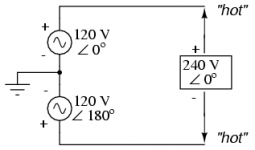3R PROJECT said:
There are trannys that supposedly regulate flow . US 220 has nothing to do with European 230 since the first is two 110s while the second is 230 from mains . Please correct me if I am wrong . Festool just emailed me that all my warranties will be voided . I got 6 bags of tools and boxed vacuums going on the plane with me on Thursday morning and I am starting to feel that I should just count my losses lick my wounds and leave everything behind . Anyone that can reassure me that I will be able to make a living with my E.U tools I will owe him a huge favor , naturally I wont hold him to it . I just don't want to end up with a bunch of busted tools and actually make my new life's beginning harder instead of easier . Thank you
You raise several questions:
1. Do the tools have any value if sold locally, and is there someone who can do that for you?
2. How much warranty is left on the tools?
3. Is your move to the US permanent?
As for the US 230/240 volts versus EU 230 volts - they are virtually the same. Our residential electric panels in USA are 240 volts - they just have a center tap that makes 120 volts as well - but the real line to line voltage is 240 volts. For 120 volt circuits, you connect to either Hot lead and the Neutral. For 240 volt circuits you connect to the two Hot leads. In your case, you can just ignore the neutral tap.
240 volts are typically wired to the electric dryer, air conditoning condensing unit, and maybe a couple other specialty items like a big air compressor in the garage. But if you just add a double pole breaker, line to line, you get 240 volts.
You will have 240 volts available all day from our panels. You will just need to rewire certain circuits to your shop outlets as well.
Or - if you're going onsite with your tools - yes, you will need a transformer to adapt the typical 120 volt outlet.
As for the legality of using those tools in the US - I can't answer. I can honestly say that I have never been asked if my tools are/were UL listed, and it would never have been an issue for me. I can't state or guess whether your experience would be the same. Sorry!

